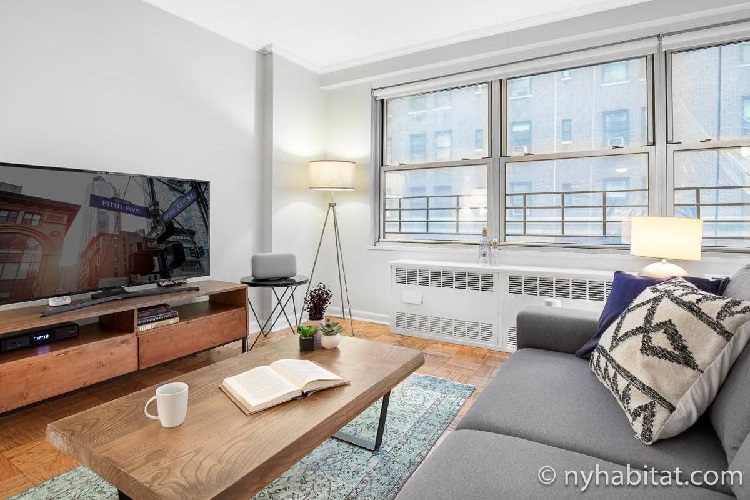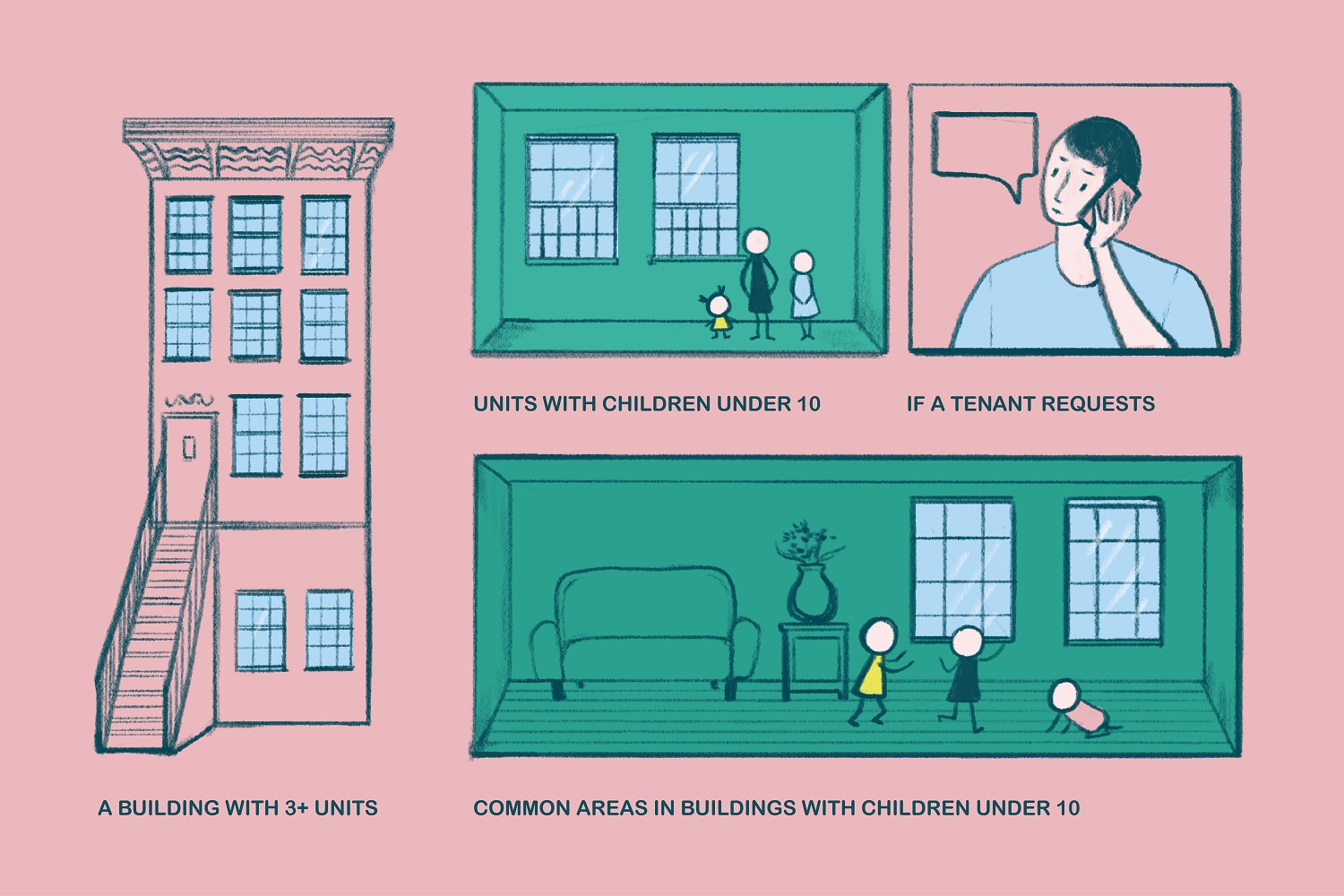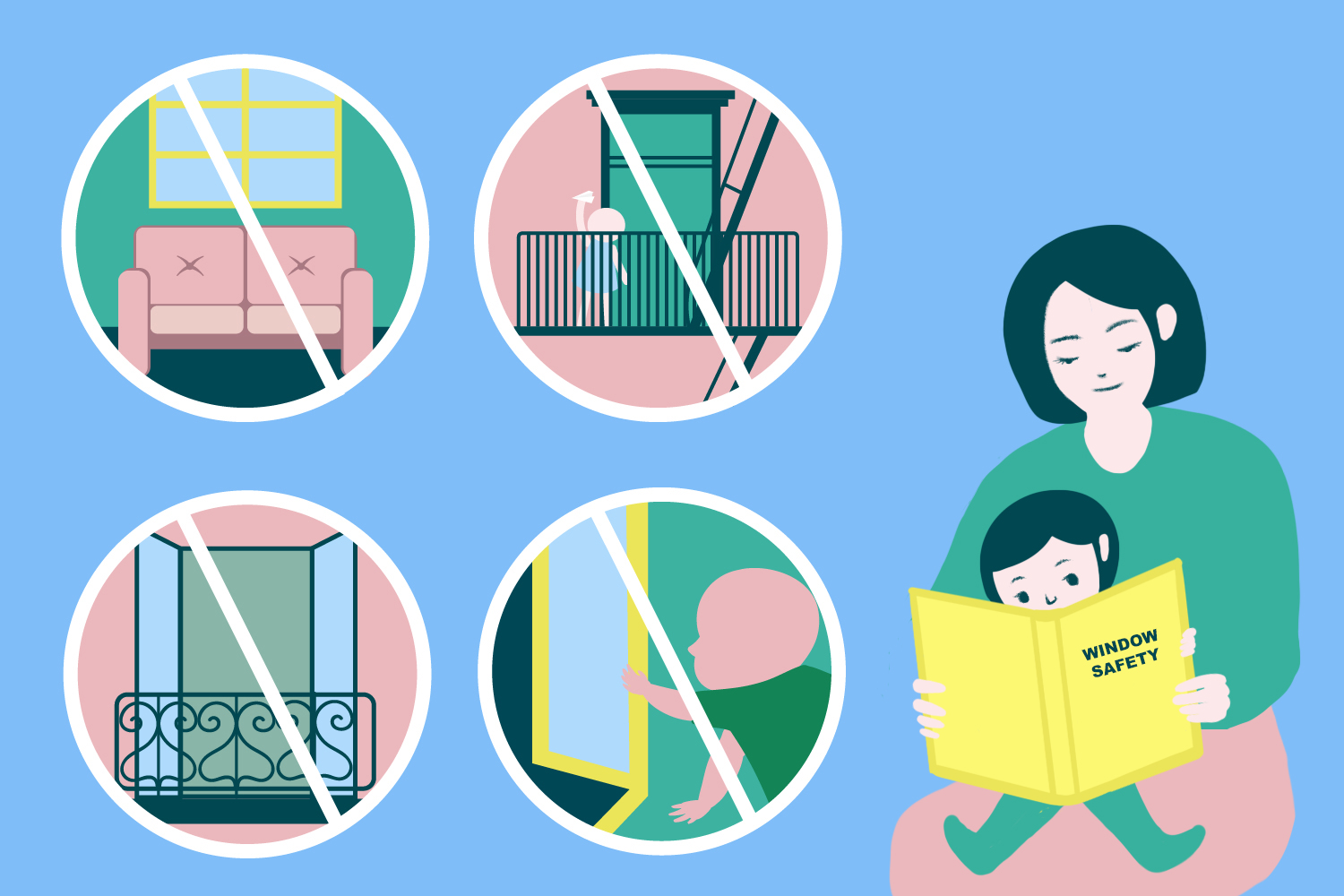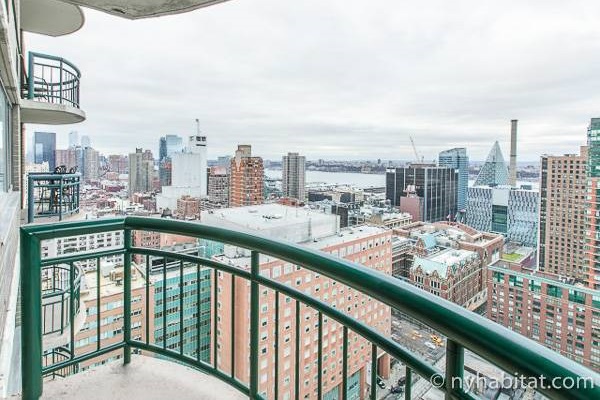
Window guards are a common sight in New York City, but play an invaluable role in keeping children safe.
If you’re new to New York City, you may (or may not) notice a rather ubiquitous sight on the windows of private homes in the city: window guards. Window guards in the city take many different appearances: some are simple and slim, some are tall and curved, and some are made of thick, old-fashioned wrought iron, but they are all regulated and necessitated by a common set of standards. But what are the standards? What are window guards for? And if you’ve never noticed or heard the term ‘window guards’ in your life, get ready to learn all you need to know about window guards as a tenant in New York City!
Window guards are one of many small but important things to be aware of when renting an apartment in New York, particularly if you’re renting a furnished sublet, sharing an apartment with a roommate, or buying your own property in NYC. Before we explain the rules for window guards, who needs them, and give you tips for safety and installation, it’s important to know what window guards are and how they’re used.
Window guards: Keeping NYC’s children safe

Window guards protect the living room windows of this 1-bedroom apartment in the Upper West Side. (Rental ID: NY-17709)
Window guards are metal or aluminum bars that are fitted over windows to prevent children from falling out when it’s open. It’s highly uncommon for NYC apartments to have insect screens (their absence is one of many common features of New York apartments), and in a city known for its iconic skyscrapers, even an insect screen wouldn’t mitigate the real danger of child falling from an open window. Window guards are deliberately designed to bear a child’s weight, and designed to be too narrow for a child to fit through. Only window guards that meet these specifications may legally be used (more on that later).
The New York City ordinance requiring window guards in residential buildings was enacted in 1976. New York was the first major city in the United States to adopt a window guard ordinance, and since its integration, child fall injuries and deaths have drastically declined. Making sure that tenants, particularly those with small children, know the proper installation, availability, and use of window guards is critical to their success.
Window guard basics that tenants must know

Any New York City apartment that meets these four basic criteria must be protected by mandatory window guards.
Window guard regulations seem pretty simple at face value. The New York Department of Health and Mental Hygiene has declared that window guards must be installed under the following conditions:
- The residence is a building with 3 or more units (for help visualizing a 3+ unit residential building, see our guide)
- Window guards must be installed on all windows of a unit in which a child under 10 is a full-time resident
- If a child under 10 years old lives in the building full-time, all windows in hallways and common areas of the building must also have guards installed
- Even if there are no children in your apartment, full-time residents may request window guards for any reason, and landlords must comply (in a building with 3+ units)
It is mandatory that windows in an apartment with a child under age 10 be guarded. NYC Local Law 57 of 2011 gives the Department of Housing Preservation and Development (HPD) authorization to leverage violations and penalties against property owners who don’t properly install window guards. Also, if a child suffers injury or death from a window fall in a situation in which the landlord improperly installed or failed to install window guards, the landlord is held legally liable. Therefore, it’s important for both tenants and landlords to comply with window guard ordinances. If a landlord refuses to install window guards, you can file a complaint with 311 to bring the installation to the attention of HPD.
But who takes care of the installation, and how must they be installed? Here are a few quick answers for contentious window guard situations:
- Landlords are responsible for installing and repairing window guards
- Landlords must send an annual notice form to tenants to determine if there are window guards needed, and tenants must respond to the notice
- Tenants may request window guards at any time during the year
- Tenants need not give a reason for requesting window guards
- Tenants may not refuse window guards if they have children under 10 (they are mandatory)
- If you live in a cooperative building (co-op), installation is the responsibility of the cooperation.
- If you live in a condominium (condo), you are responsible for installing window guards as the owner of the apartment.
- Tenants may not be charged for existing window guards at the time of move-in or window guards in common areas.
Window guards must be installed on all windows of an apartment with children; they cannot be installed selectively. The only exception to this rule is that window guards cannot be installed on windows that lead to a fire escape, for fire safety reasons. Read our guide for more information about fire escape regulations and their relation to window guards!
What this means for New York Habitat renters
New York Habitat specializes in short-term sublets (up to one year), so you may be wondering what this means for you as a renter. Vacation rental tenants who are bringing children along for a short-term stay should mention the need for window guards to their agents so that their agent can find them a child-friendly apartment with window guards already in place!
However, if you’re renting for one month or longer and you have young children living with you in your unit, ask your landlord or apartment owner about installing window guards if they are not already present. As a tenant, you and the landlord must comply with mandatory window guard regulations. If you’re moving into a unit with children under 10 and your unit has no window guards, inform your landlord in writing of the need for an installation. If your landlord doesn’t acknowledge the notice or refuses to comply, contact your New York Habitat agent. We can help you get in touch with the apartment’s owner or advise you on further steps, such as filing a complaint with 311.
Additionally, all New York Habitat clients can benefit from the safety tips listed below. Many of our clients are highly concerned with the safety of their apartment rental and neighborhood, so one of the most important things to understand about window guards is their function. Window guards are not intended to deter burglars. In New York City, seeing bars on the windows is not an indicator of an unsafe neighborhood; it merely indicates that children reside in that unit or building!
Are my window guards properly installed?

There are some simple tests a responsible tenant can conduct to ensure that their window guards are functional.
In order to make sure that new or existing window guards on your apartment’s windows are properly installed and will serve their intended purpose, there are a few installation and safety standards you can look for and test yourself.
- Check window frames for loose or rotting wood or crumbling plaster. You can do this as part of a general inspection of your new apartment’s condition and submit a repair request if the window’s structure is not sound.
- Gently but firmly push on the window guards. If the bars feel loose when you push them, they could fall out.
- Make sure screws are tightly fastened and secured on both sides of the guard.
- Approved window guards in NYC must have no more than 4.5 inches of space between bars or the bars and window sills. If there are any wide open spaces, consult your landlord or HPD.
- If the window guards don’t run the entire height of the window, there must be L-shaped stops screwed in place to keep the window from opening more than 4.5 inches above the bars.
- Window guards must not block access to a fire escape.
If the guards pass the tests above, they’re functional and ready to serve their purpose of keeping younger residents of the apartment safe. Even if you’re not living with children, it’s a good idea to test your window guards to make sure they’re safely installed. If window guards do not pass the above tests, inform your landlord as soon as possible.
NYC window safety tips

Window safety tips are valuable for kids and adults alike to keep NYC’s youngest residents safe!
Having window guards alone is not always enough to prevent a hazard or accident. If you’re moving to or visiting NYC with kids, there are extra precautions you can and should take to ensure that children stay safe and everyone can enjoy the beautiful views of New York City!
- Never leave children unattended around open windows, particularly windows that don’t have window guards.
- If you can, move furniture away from windows. Children can climb furniture to access windows.

This balcony in Midtown West has a stunning view that all members of the family will enjoy, but make sure kids never play here unsupervised. (Rental ID: NY-17447)
- Lock doors to balconies when not in use and never leave a child unsupervised on a balcony.
- Don’t let children play on fire escapes, rooftops, near elevator shafts or stairs
- Teach children about window safety.
Whether you’re traveling solo or as a family, understanding NYC’s unique window guard ordinances will help ensure that everyone has a safe and fun experience and help you be a responsible tenant. You can find some kid-approved vacation rentals here, and if you’re looking for an apartment with window guards pre-installed for your children, be sure to mention this to your agent. It’s one of many factors an agent can include in their search to help you find the most comfortable and convenient accommodations possible!






Thanks for explaining that if you have children in your apartment, you will want to invest in window guard installations. My sister has moved to NY for her job, and she found a pretty good apartment. I’ll suggest that she check the windows for guards and make sure that she find a service to install them if they’re not present.